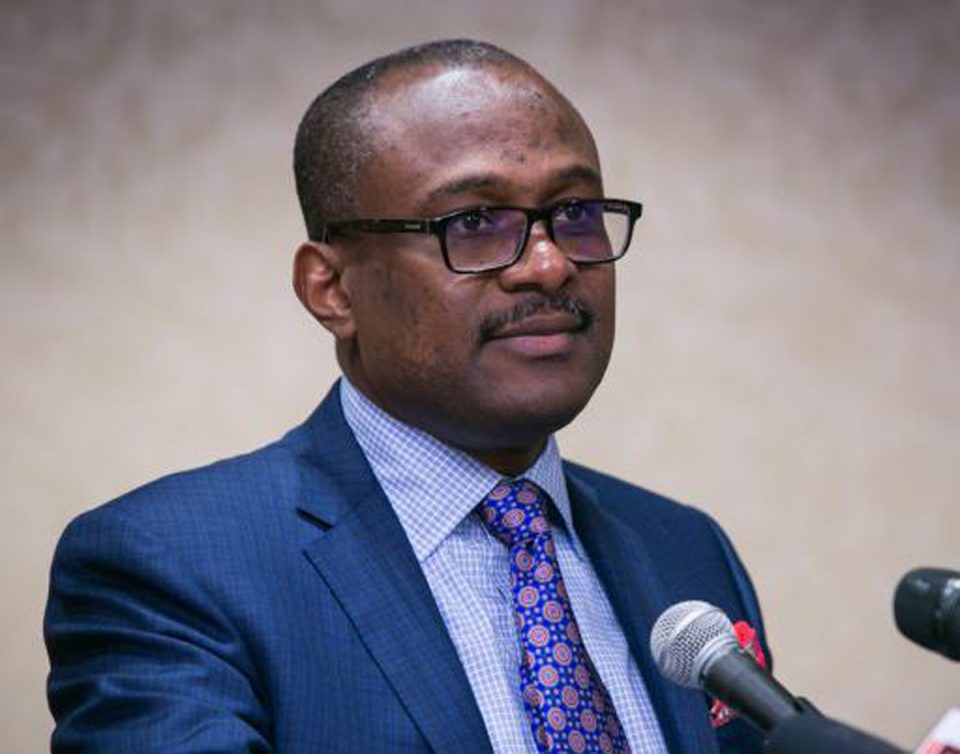The implementation of the Nigerian Oil and Gas Industry Content Development (NOGICD) Act has created over 50,000 direct jobs in the local economy over the past 11 years, the Executive Secretary, Nigerian Content Development and Monitoring Board (NCDMB), Engr. Simbi Kesiye Wabote, has said.
He stated this in Lagos during separate breakfast meetings he held with members of the Guild of Corporate Online Publishers on Thursday and editors of newspapers and broadcast stations on Friday respectively.
He hinted that the level of Nigerian content in the oil industry hovered around five percent before the enactment of the NOGICD Act in 2010, however, the focused implementation of the Nigerian Content Law resulted in an increase to 26 percent in 2016 and 42 percent as at December 2021.
Wabote explained that NCDMB had launched the Nigerian content 10-Year Strategic Roadmap in 2017, with a target to achieve 70 percent Nigerian content by 2027. As part of this goal, the Board would catalyze the creation of 300, 000 direct jobs in the oil and gas industry and linkage sectors, enable the retention of $13bn out of the estimated annual $20bn spend in the oil and gas industry and establishment of major fabrication yards and manufacturing hubs in-country.
He hinted that a pointer of the marked improvement in Nigerian content implementation is that the local economy used to retain little or nothing from the annual oil industry spend of $20 billion before the NOGICD Act, 2010 but is now able to retain more than $8 billion in-country per year. The improvement is because of the development of critical capacities and assets by local oil and gas service companies and increased domiciliation and domestication of industry operations, he said.
According to the NCDMB boss, Nigeria has also moved from near zero participation in the operations side of the oil and gas sector “to the point that our indigenous operators such as SEPLAT, AITEO, EROTON, and others are now responsible for 15 percent of our oil production and 60 percent of our domestic gas supply.”
Other major accomplishments of Nigerian content implementation include the establishment of two world-class pipe mills and five impressive pipe coating yards, the ability of Nigerian firms to fabricate more than 250,000 tonnes of steel per year and ownership of more than 40 percent of marine vessels used in the oil and gas industry by Nigerians.
The Executive Secretary further stated that over 10 million training manhours have been delivered via the Board’s Human Capacity Development Programs, adding that “ it was no surprise that our indigenous workforce was able to sustain oil production at the peak of the COVID-19 pandemic lockdown.”
Providing details of the Board’s provision of credit facilities to the oil and gas industry, Wabote said NCDMB had inaugurated a $50million Nigerian Content Research & Development Fund to drive basic research, commercialization of research breakthroughs, establishment of research centers of excellence, and to sponsor university endowments. He added that “the Board floated a $50m special loan product for women in the oil and gas business to enable empowerment of the womenfolk in the industry and established another $30m Working Capital Fund to support oil and gas service companies. Both the Women and Working Capital funds are managed by Nexim (Nigerian Export-Import) Bank.”
He announced that NCDMB recently secured the approval of its Governing Council to set up a $50 million fund for NOGAPS Manufacturing Product Line, to be dedicated to companies that would operate in the Nigerian Oil and Gas Parks, being constructed by the Board in Bayelsa and Cross River States. Beneficiaries of the NOGAPS fund would have to be engaged in the manufacturing of equipment components used in the oil and gas industry and linkage sectors.
Giving reasons why the NCDMB convened the breakfast meetings with the leadership of the media, the Executive Secretary stated that the agency wanted senior members of the media to understand the importance of Nigerian Content to the national economy and to continue to advocate for the implementation in all spheres of the Nigerian economy. He added that the COVID-19 pandemic made humanity to realize that every economy needs to develop local capacities and capabilities in the core sectors, hence, all hands must now be on deck to push the local content narrative.
He charged media practitioners to uphold the ethics of their professionalism, noting that Nigerians depend on the media for their news and information, hence practitioners must strive to retain their audience’s trust and not fall for the temptation of propagating fake news and carrying out unwarranted attacks on innocent Nigerians.
In his remarks, Manager Corporate Communications NCDMB, Mr. Esueme Dan Kikile noted that media practitioners are key partners in the implementation of the NOGICD Act and their role was clearly spelled out in section 70 (n) of the Nigerian Content legislation.




